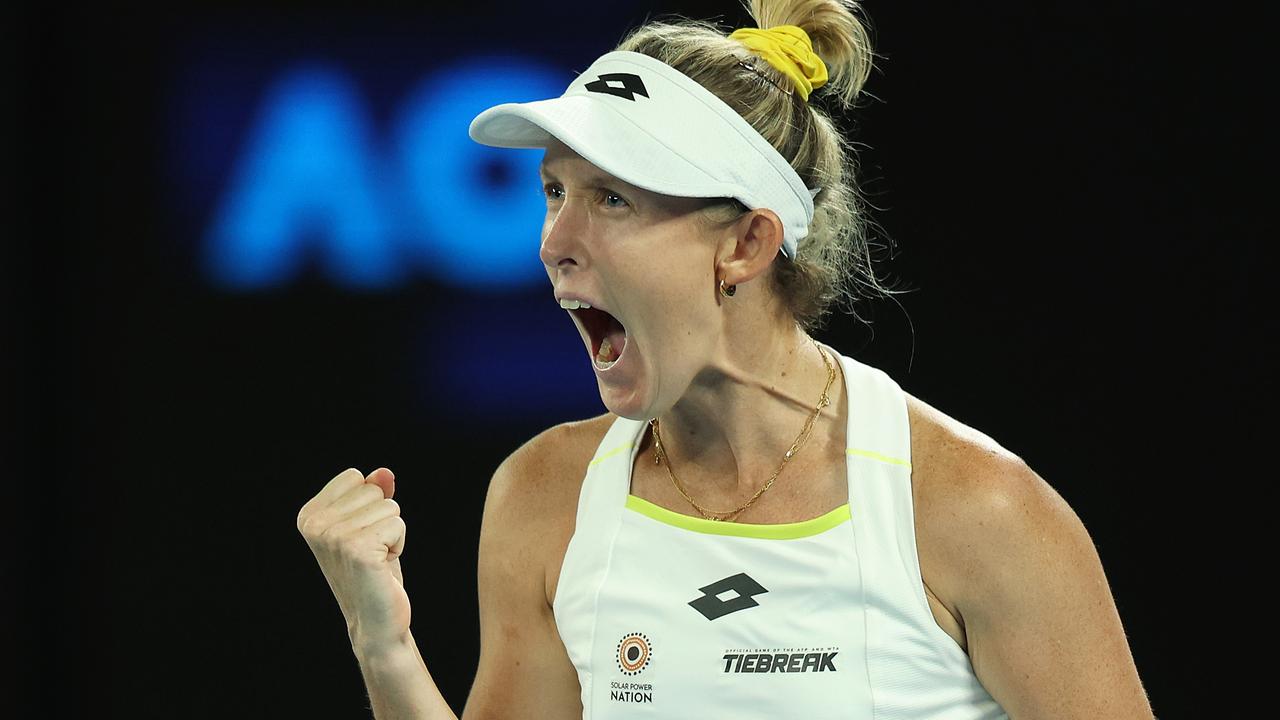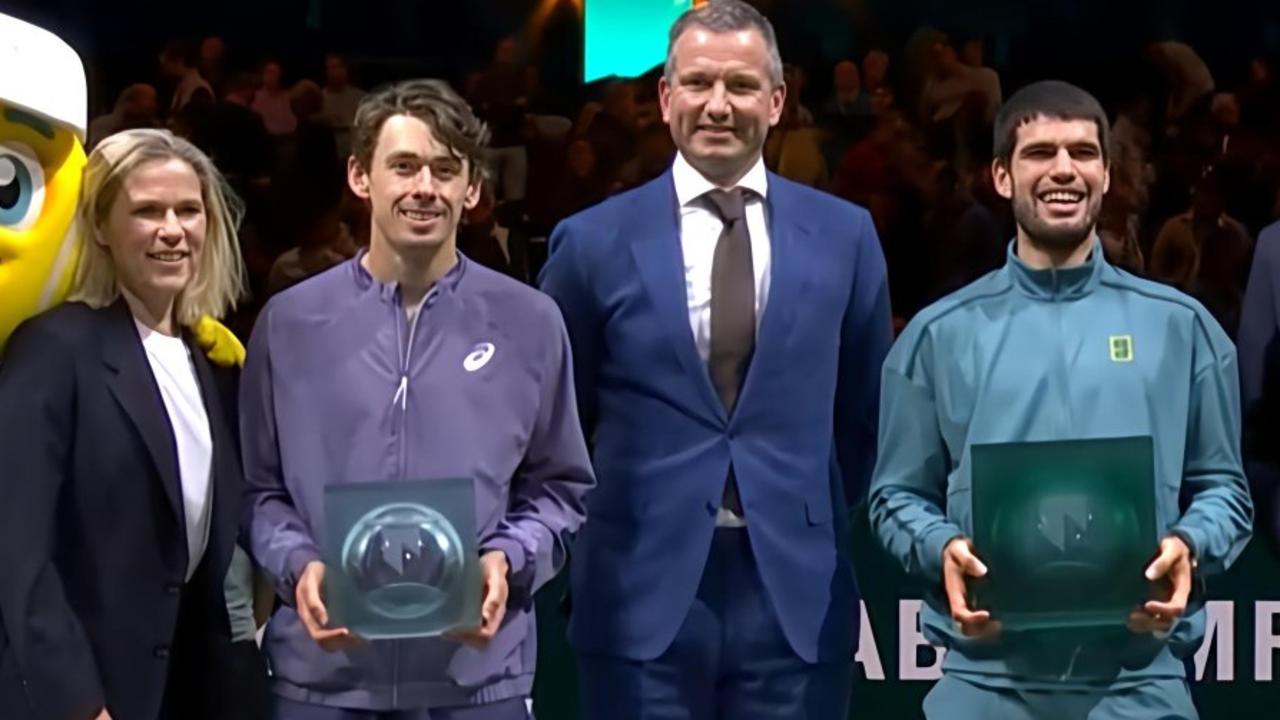After epic Australian Open, Daniil Medvedev falls at final hurdle
Daniil Medvedev could barely walk after his first round match at the Australian Open. He wound up sweating through a record 24 hours and 17 minutes on court and it still wasn’t enough.
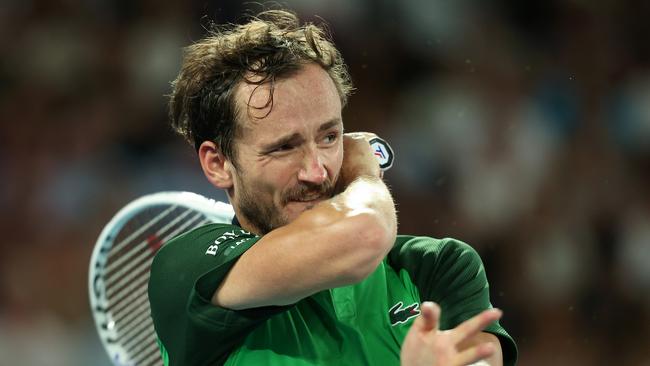
Tennis
Don't miss out on the headlines from Tennis. Followed categories will be added to My News.
Daniil Medvedev expects to feel “dead for a week” after sweating through a record 24 hours and 17 minutes on court – only to lose his fifth Grand Slam final.
Medvedev might be blistered, but he declared he was not heartbroken with the matured star proud of his marathon fortnight that had him within six points of being crowned Australian Open champion.
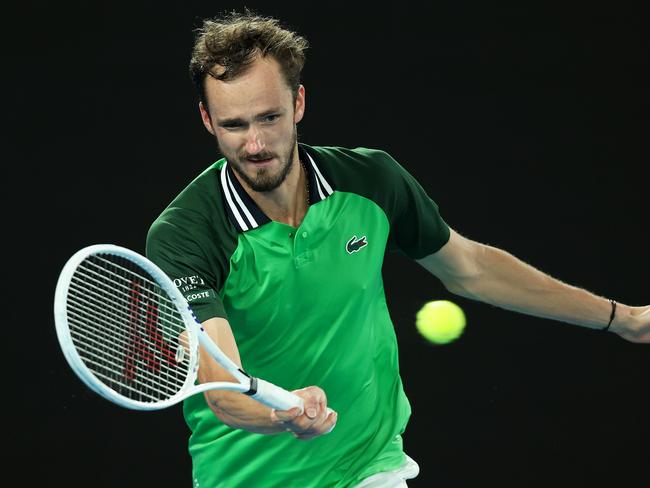
The 27-year-old – who has now lost three of the past four finals at Rod Laver Arena – revealed he could barely walk after cramping badly in the first round, long before his run of four five-set epics began.
Medvedev’s second-round win finished at 3.39am and he then ousted top-10 seeds Hubert Hurkacz (quarter-final) and Alexander Zverev (semi-final) in back-to-back five-setters to limp into the decider.
“The worst I felt was (the day after) the Hurkacz match and after the Zverev match,” Medvedev said.
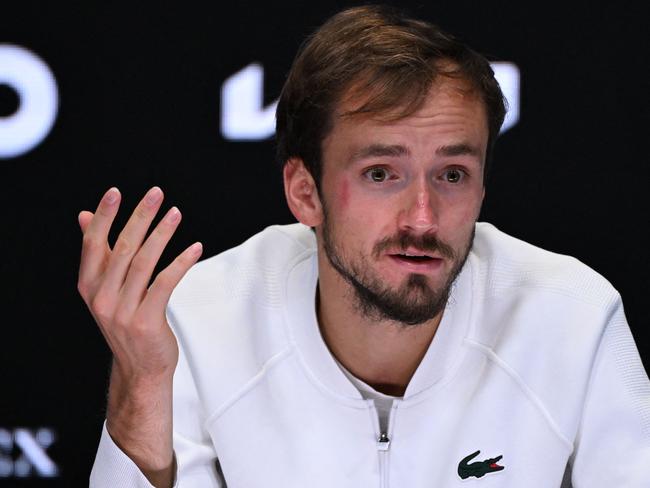
“(On Saturday) when I was on practice I was like, ‘Damn, how am I going to play the final? How am I going to move?’
“We worked really hard with my physio especially. He did a tremendous job to (ensure) every time I stepped on court I was ready again.”
Like in 2022 against Rafael Nadal, Medvedev led the final by two sets before succumbing to 22-year-old Jannik Sinner in five.
Fittingly, Sinner’s 3-6 3-6 6-4 6-4 6-3 victory was this tournament’s 35th five-setter – equalling the open era record set in 1983 (US Open).
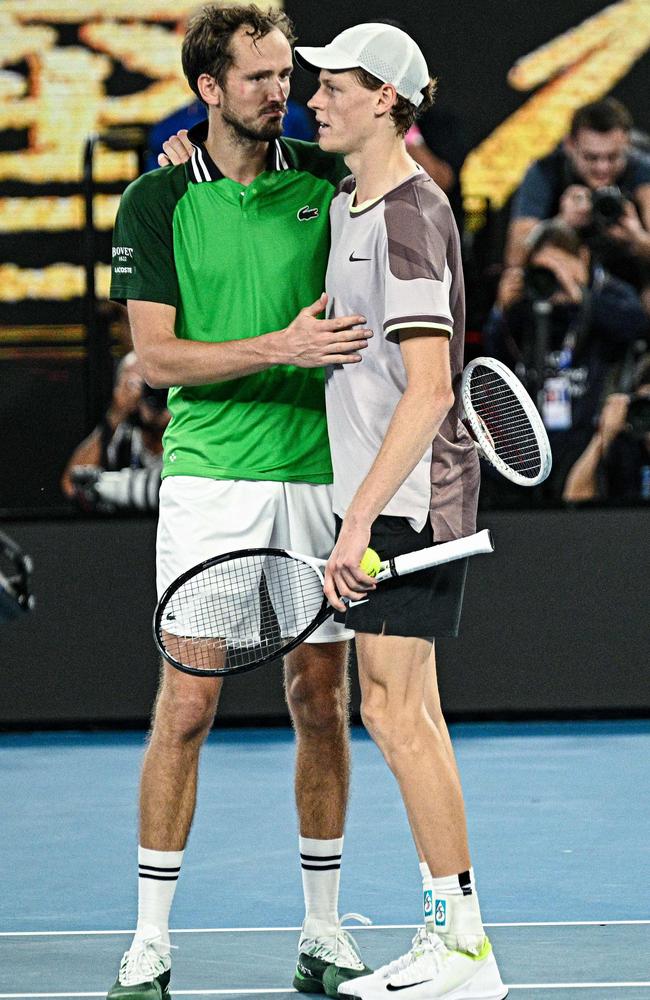
Medvedev is also now the first player in the Open era to lose multiple slam finals from two sets up.
He is 50-2 on hard courts after claiming the first set, but those two losses have been those two finals at Melbourne Park in 2022 and 2024.
“For sure it’s better to come like Jannik, losing one set (on the way) to the final – but sometimes you don’t have another choice,” Medvedev said.
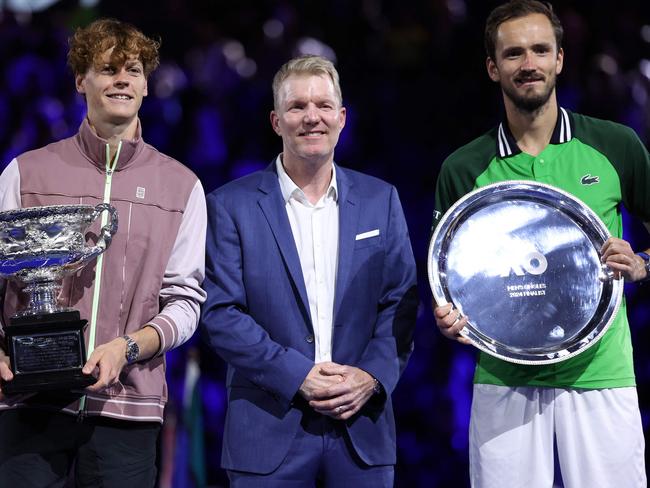
“After (beating Zverev) I went to bed at 5am again. I’ve never had this late, crazy sleep time.
“When you go to sleep really late the next day you feel horrible, and then you try to recover for the next day.
“But at least I got a record in something (most time on court) – I’m in the history books for something.
“If I would be 100 per cent fresh physically, maybe with my coach we could decide before the match I’m going to get into these rallies and let’s see who is stronger physically.
“But I knew that today I’m not in this shape so I needed to make the points as short as possible.”
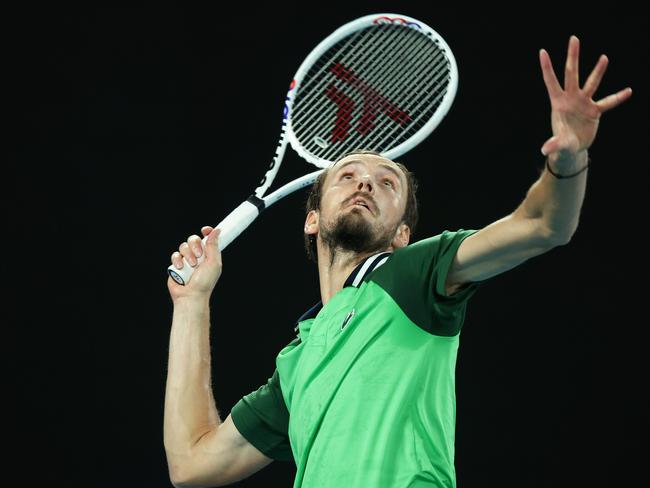
Medvedev’s phone quickly lit up with hundreds of messages saying ‘I’m proud of you bro’ or ‘Big man hug’ and he was thrilled with his circle of loved ones.
“I don’t want to be loved by everyone – it’s impossible. But I want the people that I love to love me back,” he said.
The world No. 3 hid his cramp in round one and realised moments later his opponent was cramping too.
“I felt like in five minutes, I’m done, like, I cannot move,” he said.
“I could lose in the first round (yet) I’m in the final. I’m happy.”
Sinner’s co-coach was in awe of the beaten ironman.
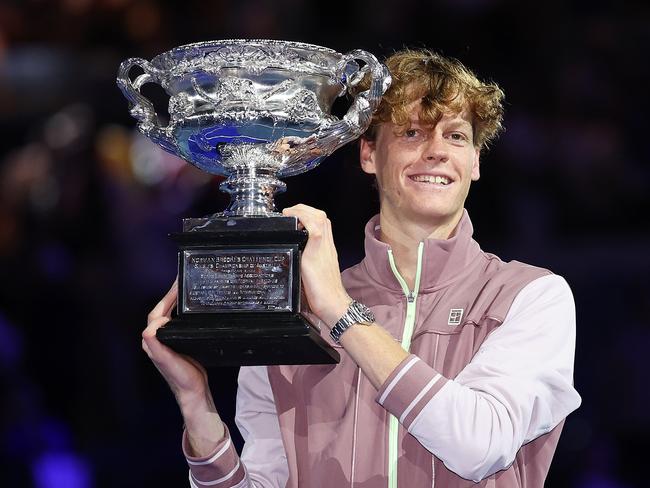
“Daniil went to hell and back in this tournament,” Australian Darren Cahill said.
“What he put himself through physically – I didn’t think he was going to beat Zverev, and he was able to come through that one.
“There’s been a couple of other matches where he was up against it, had his back against the wall, and he just continues to push himself and fights until the last point.
“Physically I can’t even imagine how he’s feeling. He must be hurting big-time.”
Incredibly, Cahill has now coached Lleyton Hewitt, Andre Agassi, Simona Halep and Sinner to Slam glory – four athletes with diverse styles, backgrounds and languages.
Sinner was stunned by Medvedev’s ambush as he played ultra-aggressive tennis to break his serve four times across the first two sets.
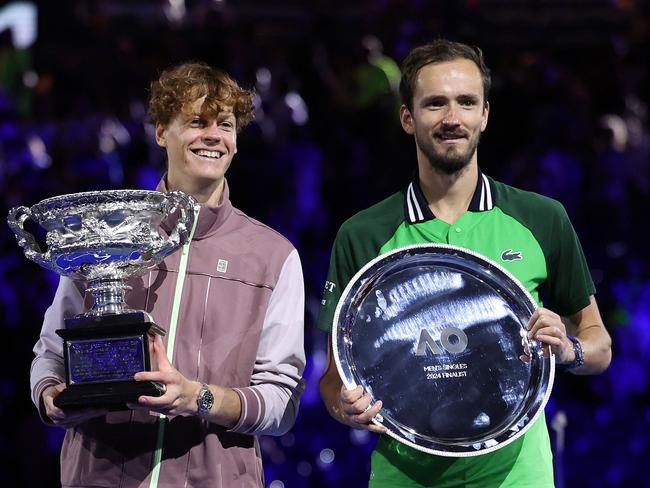
“I was expecting something different from his side … (but) not this aggressive,” he said.
“I just tried to stay as long on the court as possible, knowing that he has spent so many hours on the court.
“The more the match goes on maybe physically I’m a little bit better, because he played so many hours. That was the key.”
Sinner spent almost six fewer hours on court than Medvedev leading into the final and did not play any competitive matches leading into the 15-day tournament.
Sinner left home at 14 to pursue his tennis career and had to mature quickly away from his parents.
“I don’t see them (my parents) often unfortunately, but when I see them it’s always a great time,” he said. “I had to grow up quite fast, trying to cook for myself, trying to make laundry.
“They never put pressure on myself, which for me is maybe the key why I’m here today.
“They are the perfect parents.”
Sinner became the first Italian man to win the Norman Brookes Challenge Cup and just the second player under-23 in the open era to win a Grand Slam final from two sets down, after Bjorn Borg at Roland Garros in 1974.

